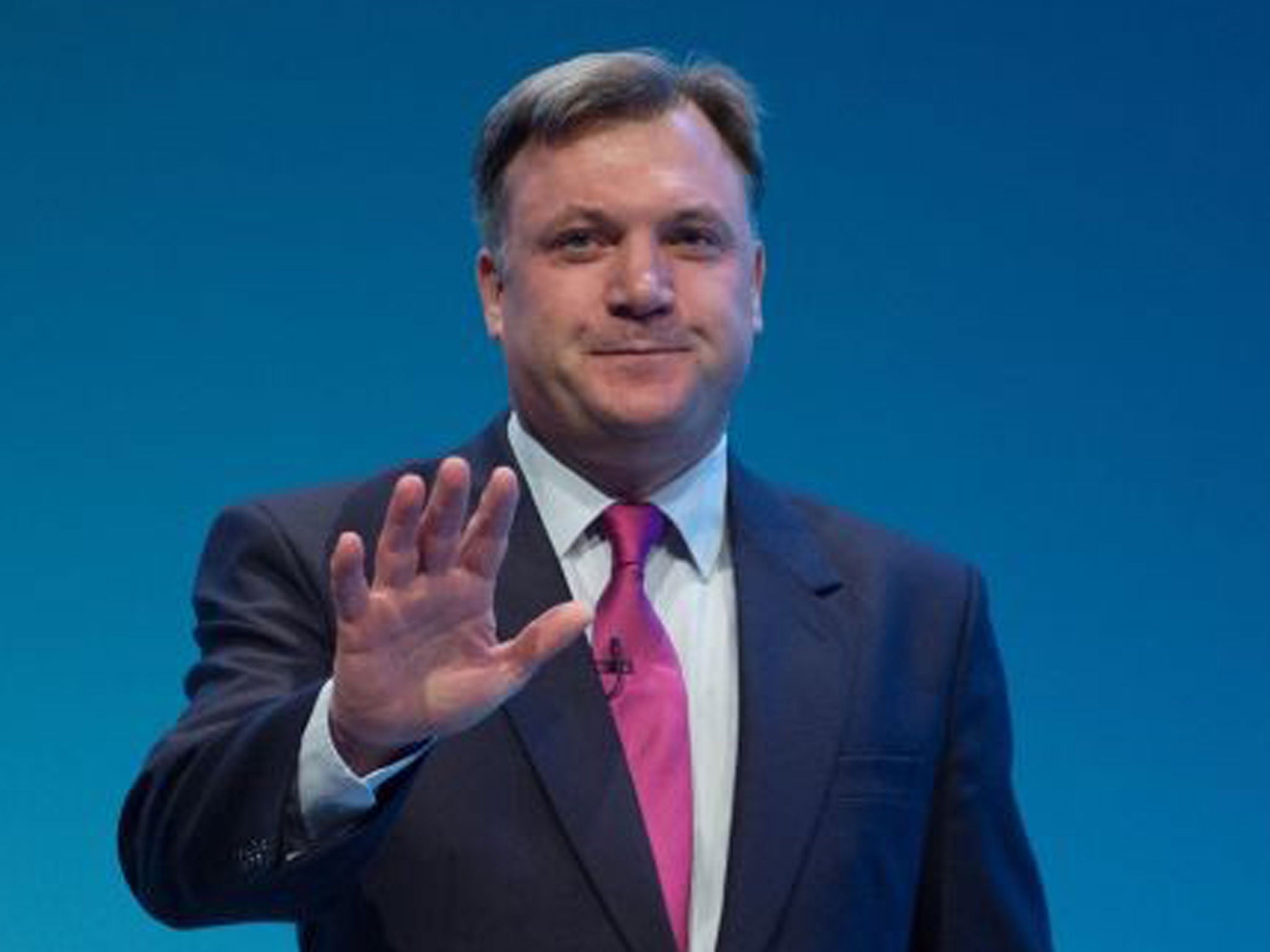Ed Balls is no longer a sticking point in Lib-Lab coalition
Nick Clegg would accept Shadow Chancellor in 2015 election deal

The Liberal Democrats would accept Ed Balls in a Lib-Lab coalition cabinet at the next election, despite deep misgivings inside Nick Clegg's party about the Shadow Chancellor's ability to win the economic argument, party sources have told The Independent on Sunday.
Mr Balls had been seen as a "deal-breaker" in coalition negotiations between Ed Miliband and Mr Clegg if the 2015 election were to result in a hung parliament, but the Lib Dem leader is understood to want "policies not personalities" to decide any second coalition deal.
The Shadow Chancellor has been under fire for his flustered Commons response to the Autumn Statement earlier this month, and reports before Christmas suggested that the Labour leader would fire him by next September unless he regained economic credibility for the party.
Yet, in what will be seen as a major concession, senior figures in Mr Clegg's circle say that the Lib Dem leader would not make "personnel demands" during what are expected to be tough negotiations for a second coalition.
Policy demands Mr Clegg is likely to make include extending the pupil premium, a flagship Lib Dem measure introduced under the coalition, further tax cuts for low earners and a better deal for the environment. They are also preparing to push hard on the case for electoral reform, despite the disastrous rejection of the alternative vote (AV) system in a referendum in 2011 and the failure of House of Lords reform, two key items on the Lib Dem wish list in 2010.
Mr Clegg wants to see proportional representation (PR) in local government, which senior sources say could be introduced without the need for a national referendum, unlike the AV vote. As the additional member system, a combination of first past the post and PR, is already in place in London Assembly, Scottish Parliament and Welsh Assembly elections, the Lib Dems do not believe voters would object to the idea of PR in local elections because it would not constitute a "huge leap".
However, the Conservatives are staunchly against any form of PR voting – despite a report by the Electoral Reform Society last month showing that the Tories could gain a stronger foothold in north of England councils under PR. Labour would get more council seats in the South outside London, where they are currently at their weakest. Crucially, Mr Miliband is said to be receptive to the idea of PR in local government, and this could clinch a Lib-Lab coalition.
In the new year, all political parties will step up their planning for the general election and the first 100 days of any government. With a second coalition term looking increasing likely, the Lib Dems are already "war-gaming" what will be tough negotiations over the weekend of 9 and 10 May 2015.
By letting it be known that, despite his chequered record on the economy, Mr Balls does not represent a "red line", it is clear that Mr Clegg does not want to risk banning him from a Lib-Lab coalition cabinet in case his own position is vetoed. Many Labour figures see Mr Clegg as too close to David Cameron and could urge Mr Miliband to demand fresh faces. But a senior Lib Dem source said: "It cannot be decided on personalities, we have to stick to policy."
If there is a hung parliament, the Lib Dems are in a stronger position than in 2010 because, back then, Gordon Brown's record and unpopularity gave Mr Clegg and his negotiators little choice but to back the Conservatives. Next time, say insiders, it is "all to play for" because entering into coalition with Labour would be potentially less controversial.
Current polling for the 2015 general election suggests that Labour will end up with more seats than the Conservatives, but could fall short of an outright majority. If this were the case, Mr Clegg believes that Labour would have the right to be consulted first in coalition negotiations. A dilemma would arise for the Lib Dems if Labour gained the most seats but the Conservatives had a greater share of the vote.
The strategy of accepting Mr Balls is hugely risky for the Lib Dems because, by May 2015, the economy could be well into positive growth and they might be criticised for siding with someone so heavily associated with the last Labour government.
Subscribe to Independent Premium to bookmark this article
Want to bookmark your favourite articles and stories to read or reference later? Start your Independent Premium subscription today.

Join our commenting forum
Join thought-provoking conversations, follow other Independent readers and see their replies